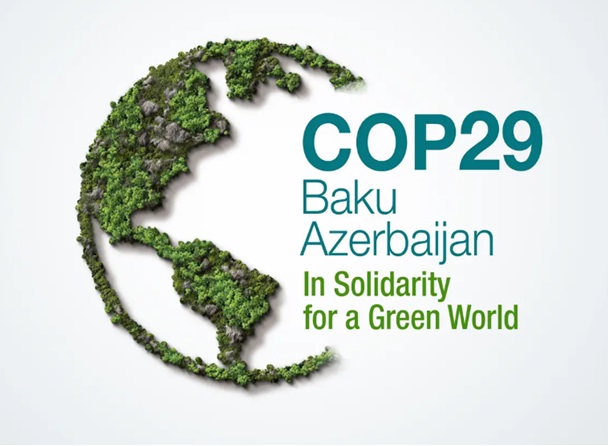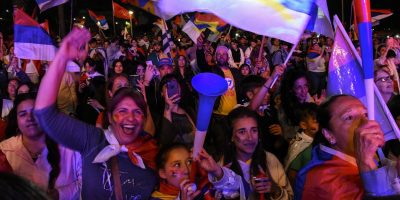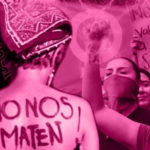By Hussien M. Yusuf
The 29th Conference of the Parties (COP29), heralded as a critical juncture in the fight against climate change, ended with outcomes that left much to be anticipated. For nations in the Global South, particularly in Africa, the summit was yet another repetition of unmet promises and shallow commitments. While the banners of climate action were proudly displayed, the conference’s outcomes raised a fundamental question: was COP29 truly about addressing climate change, or was it another stage for wealthy nations to project commitment while shirking their financial and moral responsibilities?

A Lack of Action on Climate Finance
Central to the disappointment of COP29 was the glaring gap in addressing climate finance, particularly for adaptation. Since the $100 billion annual commitment was first pledged in 2009, wealthy nations have struggled to meet even this modest target. The irony is not lost on developing countries that contribute minimally to global emissions yet bear the brunt of climate change impacts. While wealthy nations emphasized mitigation efforts—such as transitioning to renewable energy and reducing emissions—adaptation, which addresses the immediate impacts of climate change, remained underfunded and under-prioritized.
The lack of robust financial commitments to the Loss and Damage Fund, a much-discussed mechanism aimed at compensating vulnerable nations for climate-induced destruction, was emblematic of the broader neglect. What African nations and other vulnerable regions sought was not merely a promise but a functional, adequately funded mechanism to address the severe economic and social consequences of climate disasters. Instead, COP29 produced yet another cycle of vague pledges and deferred responsibilities, leaving the world’s most vulnerable populations exposed.
Empty Pledges Cannot Drive Change
Pledges without mechanisms for enforcement or accountability have become a hallmark of COP summits. COP29 was no exception, with lofty promises made but no significant framework established to ensure their realization. Wealthy nations often tout contributions that are either overestimated, double-counted, or offered as loans instead of grants, further indebting already struggling nations. This approach undermines the very essence of climate justice.
For nations in Africa, the inability of COP29 to catalyze significant adaptation financing represents a betrayal. Adaptation funding is not a luxury but a necessity, enabling nations to build resilience against rising sea levels, erratic weather patterns, and climate-induced displacement. Yet, adaptation continues to receive less than 20% of total climate finance. This imbalance leaves vulnerable nations trapped in a cycle of reaction rather than preparation.
The African Perspective: What Was Expected
Africa, which contributes less than 4% of global greenhouse gas emissions, suffers disproportionately from climate change. East African nations, in particular, have been on the frontlines of the crisis. Prolonged droughts, erratic rainfall, and devastating floods have wreaked havoc on lives, livelihoods, and economies. At COP29, African nations expected the following:
1) Substantial Adaptation Funding: Africa’s leaders sought a significant increase in adaptation resources to fortify infrastructure, enhance agricultural resilience, and support water management systems.
2) Recognition of Africa’s Unique Vulnerabilities: The continent’s economic and climatic challenges demanded tailored solutions, yet COP29 failed to adequately address these concerns.
3) Fair Representation in Negotiations: African delegates demanded a stronger voice in shaping the agenda and outcomes, but the power imbalance persisted, with wealthy nations dominating the discourse.
Instead of addressing these critical needs, COP29 became a platform for symbolic gestures rather than substantive action. The disconnect between the summit’s rhetoric and its outcomes underscores the marginalization of African priorities.
Transforming COPs: A Call for Real Change
The structural flaws of COP conferences are now impossible to ignore. Instead of fostering genuine solutions, these gatherings have become arenas for political posturing and incremental progress. For the Global South, this status quo is unsustainable. To transform COPs into platforms for meaningful climate action, several changes are necessary:
- Binding Commitments: Agreements must move beyond voluntary pledges. A robust accountability framework is needed to hold nations accountable for their financial and emissions reduction commitments.
- Rebalancing Mitigation and Adaptation: The disproportionate emphasis on mitigation must be corrected to address the urgent adaptation needs of vulnerable nations.
- Elevating Voices of the Global South: Representation from affected regions must be central to decision-making processes. Solutions must be co-created with those most impacted by climate change.
Why This Matters for East Africa?
For East African nations, the stakes could not be higher. The region is grappling with the dual crises of drought and flooding, which have devastating human and economic consequences:
- Drought: Prolonged dry spells in Somalia, Ethiopia, and Kenya have left millions facing acute food insecurity, threatening livelihoods in agriculture and pastoralism.
- Flooding: Erratic rainfall has led to widespread displacement and infrastructure damage, particularly in Uganda and South Sudan.
Climate adaptation funding could transform the region’s ability to withstand these challenges. Investments in resilient agriculture, water management, and disaster response systems are critical to safeguarding livelihoods and fostering sustainable development. However, without substantial support from the international community, these nations are left to navigate the crisis with insufficient resources.
COP29 was a missed opportunity to demonstrate genuine commitment to addressing the global climate crisis. For Africa, and particularly East Africa, the failure to deliver on adaptation finance and Loss and Damage mechanisms underscores the persistent inequities in international climate negotiations.
To make future COPs meaningful, they must evolve from platforms of rhetoric to arenas of action. The world’s wealthiest nations have both the responsibility and the resources to lead this transformation. For vulnerable nations, particularly those in East Africa, this shift is not merely desirable—it is essential for survival in an increasingly unpredictable and hostile climate.
The time for promises has passed. It is now time for real, enforceable commitments that prioritize those most affected by climate change.
Hussien Mohamed Yusuf
Email: at [email protected]
——————————–
Hussien is Climate Change and Environmental Sustainability Practitioner based in Nairobi.
We welcome the submission of all articles for possible publication on WardheerNews.com. WardheerNews will only consider articles sent exclusively. Please email your article today . Opinions expressed in this article are those of the author and do not necessarily reflect the views of WardheerNews.
WardheerNew’s tolerance platform is engaging with diversity of opinion, political ideology and self-expression. Tolerance is a necessary ingredient for creativity and civility.Tolerance fuels tenacity and audacity.
WardheerNews waxay tixgelin gaara siinaysaa maqaaladaha sida gaarka ah loogu soo diro ee aan lagu daabicin goobo kale. Maqaalkani wuxuu ka turjumayaa aragtida Qoraaga loomana fasiran karo tan WardheerNews.
Copyright © 2024 WardheerNews, All rights reserved














